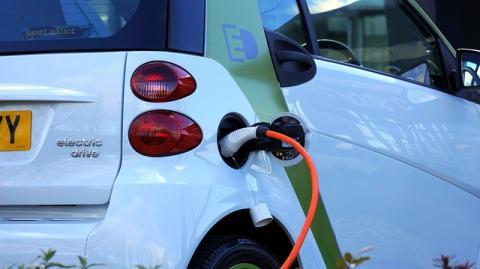
Solar-powered cars may sound like something modern, but the truth is that they actually made an appearance in the late 1970s. However, the first completely solar-powered car was developed in 1984 by Greg Johanson and Joel Davidson. Solar-powered cars were obviously slow to catch on, but electric cars in general have been gaining in popularity in recent years. While electric cars were difficult to find 20 years ago, several automakers have now developed electric versions – and the crowd is loving it.
Instead of running off of gasoline and diesel fuel, electric cars run off of battery power. There are models that charge using solar power or through a plug-in charge from electric charging stations, or even from the luxury of your own home. There are also hybrid cars that utilize more than one source of energy. Some hybrids use solar and charging stations, and some are hybrids that use solar and electric charge for shorter trips, but they also run off of gasoline. The hybrids that use gasoline are meant for the long road trips where charging stations can be hard to find.
The most traditional and most purchased electric car models are 5-passenger hatchbacks. You can also find two-seaters, SUVs, and high-end luxury cars. When it comes to price range, these vehicles can vary in price, just like the gas-powered models. You’ll see prices ranging from $22,000 to $125,000.
Why People Are Trading In Fuel For Electric
- Uses less energy: If you are driving a vehicle that is solar-powered you are running off of the sun. Many of the cars use charging stations which may use some energy from fossil fuels but the impact on the environment is nothing like burning a full tank of gas.
- Costs about 1/3 as much to run it: To charge your vehicle at a charging station, on average, it is only going to cost about $4 for a total recharge. One gallon of unleaded fuel costs at least half that in most places in the U.S.
- Requires less maintenance: No oil changes required! No petroleum used, so no oil change needed. These vehicles require less maintenance in general than fuel-powered. Unless you’re driving a hybrid there’s no petroleum necessary which limits the amount of work needed for upkeep of the vehicle.
- Makes less noise: I rode in a Nissan Leaf with a friend and I had to ask if the car was on while we were in park -- it was that quiet.
- Creates no tail pipe emissions: The emissions are produced from burning fuel so without the fuel there is nothing to release. Imagine a world with less smog!
- Can be charged at home: All of the electric cars can be charged right at home. There is charging equipment you can purchase in order to plug in at home.
- Uses no petroleum: The ALL electric cars require NO petroleum in any way; the hybrids, however, do, but it is still less than what a gas- or diesel-powered vehicle would use.
- Can be combined with alternate power: These cars are amazing! You can combine different alternative energies to keep your car rolling, reducing your dependence on any one source.
It is time for the fossil fuel industry to slow down and hit the road and make room for something else. The extraction of fossil fuels can really put a hurting on Mama Earth, especially if there are leaks. Electric-powered and eco-friendly hybrids are proof that there are other means of energy to help us get around. There are also conversions that can be made to diesel fuel vehicles that will convert them to run off of used veggie oil (that’s a whole different article for you to look forward to). Our planet can only take so much more, so go ahead and check out some of the awesome options available -- I dare you!








